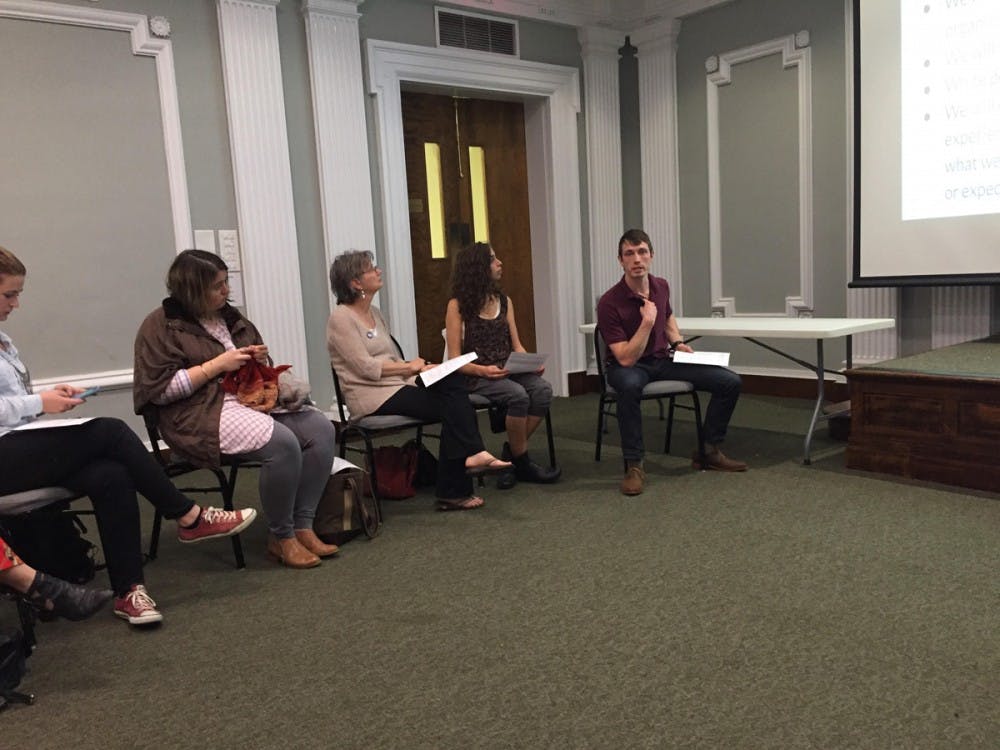SURJ Charlottesville, the local chapter of the national group Showing Up for Racial Justice, hosted a discussion Monday entitled “Education to Action: Reparations” at the central branch of the Jefferson-Madison Regional Library.
The focus of the discussion was on “reparations as a method to repair harm done” to the black community, according to a handout distributed at the event. Sixteen people were in attendance.
The handout listed specific forms of reparations, including “access to high quality educational opportunities in the form of full and free access for all black people to lifetime education” and “legislation at the federal and state level that requires the United States to acknowledge the lasting impacts of slavery, establish and execute a plan to address those impacts.”
The leader of the discussion, Matthew Owens, an affiliate of SURJ Charlottesville who helps organize educational events, said he had several goals for this discussion.
“The goal was to have people, first of all, just know that when we talk about reparations, from the perspective of Movement for Black Lives, we are talking about five very specific things,” Owens said, referencing the five specific reparations cited in the handout.
“But then also what I wanted people to see was a little bit about their own journey in thinking about reparations,” Owens said. “And then the other goal … was that they take this conversation about reparations back into their white social circles and find ways to discuss reparations with people they might not have otherwise discussed it with.”
Attendees had different reasons for being at the meeting.
“After the inauguration, I became energized to be more involved than I have been in the past,” said Wendy Perry, who is not a member of SURJ, but a representative of the Charlottesville Democratic Party’s outreach committee.
On the other hand, Miriam Arbeit attended as a member of SURJ Charlottesville and said she participates to advocate for racial justice.
“I am a part of SURJ to work on preparing myself and other white people to be part of a multiracial movement for racial justice in the U.S.,” Arbeit said. “Part of that is responding to the call from black leaders of the black liberation movement for white people to work to undermine white supremacy in white-dominated institutions and in white communities.”
This discussion was open to both SURJ members and interested community members, Owens said.
Though not exclusive, SURJ Charlottesville is “primarily interested in reaching white people” with these discussions, Owens said. He also said the organization is committed to combatting racism where it exists.
“And the strategy is focused on undermining those beliefs — undermining the ignorance that supports institutions that maintain white supremacy,” Owens said. “It’s important to not think of white supremacy as the KKK but to think of white supremacy as the interactions between systems and institutions that systematically oppress black people.”
In addition to education, SURJ Charlottesville also has an arm focused on direct action. This section organizes events and works to take action in the community.
This discussion was the third of six discussions SURJ is hosting in Charlottesville. All six are based on the six demands published online by the Movement for Black Lives, which can be found on their website.







